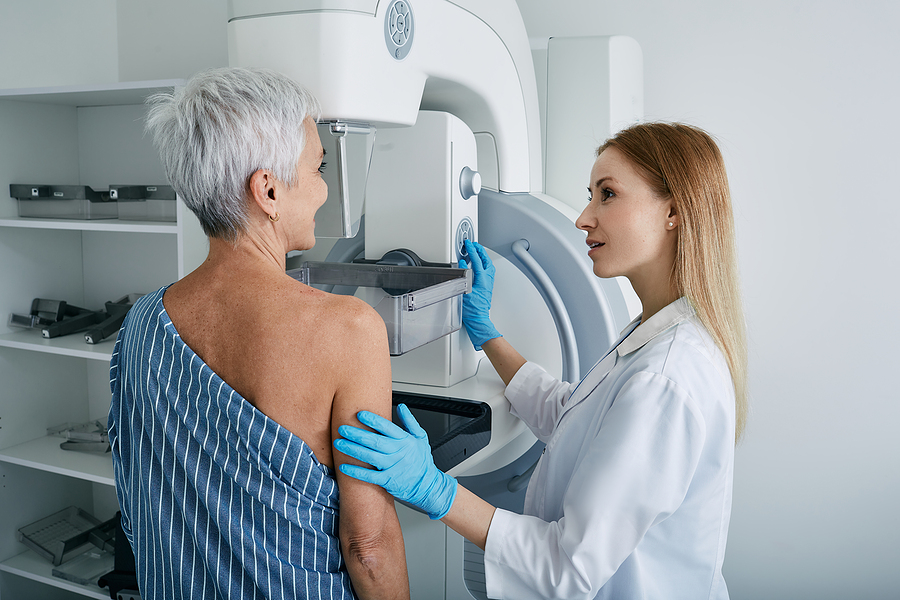We’re not invited to do this after we’re 75, but what does the research say?
The Cancer Council’s website advises that it’s important for women aged 50-74 to put breast screening at the top of their to-do list. If we miss one, we need to catch it up, because while life can be busy, screening could save our lives.
Then we turn 75, and breast screening services suddenly have a different message. For example, in Queensland ‘we offer breast screening for women who are 75 and over, but we won’t send you an invitation or reminders to screen. You’ll need to contact us to make an appointment’.
In Western Australia the wording is more blunt: ‘once you turn 75, you have completed the breast cancer screening program and routine screening is no longer recommended. There is no scientific evidence that for women over 75 participating in a population breast cancer screening program results in more health benefits than harms’.
Across most states and territories the gist is that you’re welcome to be screened but you won’t be receiving an invitation.
Not that breast cancer disappears after our 75th birthday.
If we look at a graph of age and incidence of breast cancer (you can see one here from Breast Cancer Network Australia — scroll down to the pink bar graph) it tells us that women in their 50s have about as much breast cancer as women in their 70s, while the peak age bracket is the 60s. In our 80s it drops off to between the incidence of our 30s and our 40s.
In addition to this statistical drop-off, another reason for not encouraging widespread screening for older women is that with age we’re more likely to be dealing with other health conditions. This might make mammograms too onerous, and/or we might be more likely to die from something else.
In the US there aren’t recommendations for screening in women over 75 either, but last month an article on this was published from a group of researchers at the University of California, Los Angeles hospital and medical school (UCLA Health).
They reviewed the outcomes for 174 breast cancer patients diagnosed between 2013 and 2020 who were 80 years old or more to see if there was a difference between the women who’d continued with screening and those who hadn’t. The women ranged in age between 80 and 98; median age 83.
Ninety-eight had been screened within two years of their diagnosis and the other 76 hadn’t. The two groups didn’t differ much in other ways — they were mainly White and similar in relation to health status, smoking, and so on.
Although most had stage 1 or 11 tumours (i.e. not advanced) unscreened women were more likely to have higher grade tumours. Screening helps to find tumours when they’re small, and early diagnosis hopefully means less invasive treatment.
While the numbers in this study weren’t large, the screened women came out better on measures of disease-free survival and overall survival, echoing the results from other recent studies looking at this issue. Investigators are concluding that if a woman is healthy and likely to live another 10 years or more, screening is recommended.
Of course, mammograms aren’t the sole means of screening. The most obvious alternative in Australia might be ultrasound, which we need to pay for, but for anyone who prefers having a probe and cold, sticky gel run over her breasts to having them squeezed between a couple of plates it could be an option.
There’s also an argument that if we keep looking, we’re more likely to find tumours that might never develop into anything dangerous. But once detected there’s a compulsion to treat them, just in case. This is called overdiagnosis.
Some researchers argue that until we’re 90 the benefits of screening outweigh the risks of overdiagnosis. They claim that as our life expectancy increases, the benefits of screening increase.
Not everyone agrees though, and there are certainly women aged 75 and over who’ve had mastectomies in response to cancers that may or may not have developed.
Hopefully, the whole system will become better at waiting and watching these situations.
Women’s decisions about screening have been shown to largely reflect advice from their doctors, but it needs to be a joint consideration. It comes down to our own values (whether we’re committed to screening or not), and what else is going on for us health-wise.
One thing seems clear though: whether to stop or continue screening shouldn’t just be about turning a particular age.
A medical team from a Boston hospital has recently come up with this tool to help women over 55 make decisions about breast screening. It also aims to provide a ten-year risk assessment.
https://bcrisk55plus.shinyapps.io/risktool/
I had a play with it to see what it responds to. If I increased my age to say I was 76 my risk dropped.
Saying I use hormone therapy (estrogen + progesterone) increased the risk, as did saying that my mother’s had breast cancer.
It’s early days for this so don’t treat it as gospel, but it might provide fodder for a conversation with your GP if you’re at the stage of deciding whether to keep screening or not.
Photo Source: Bigstock

